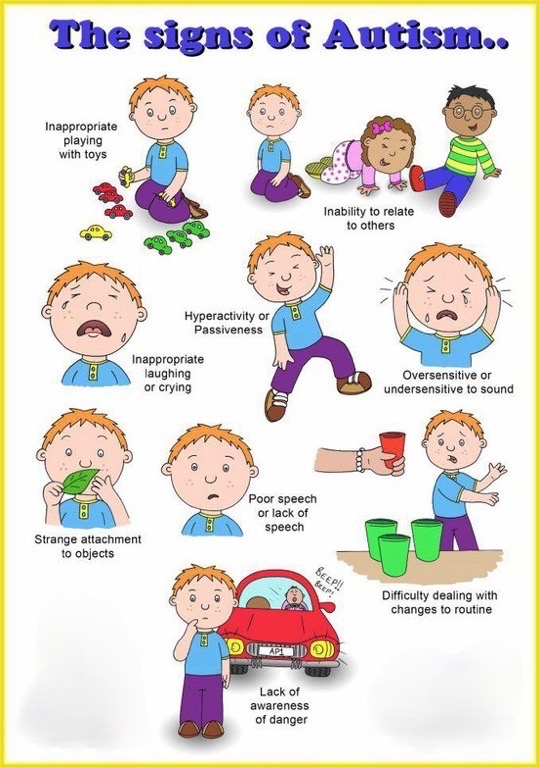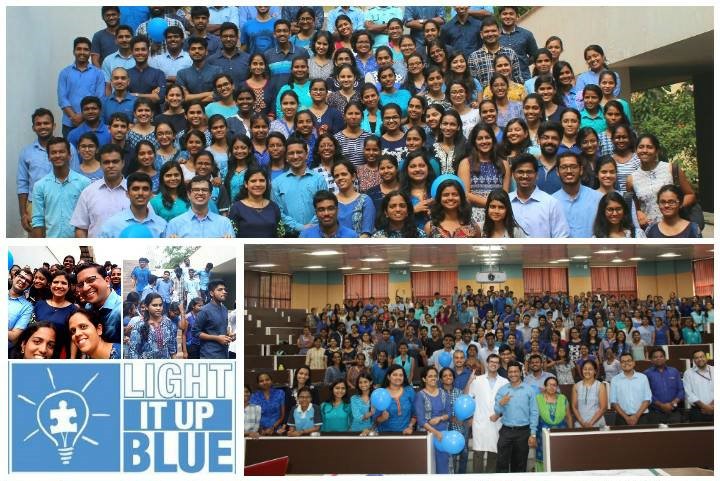APRIL 2 is World Autism awareness Day. Goan Observer speaks to DR AMIT DIAS from the Department of Preventive & Social Medicine at GMC, to throw in some “blue light” and help us understand the spectrum of autism. Dr Dias has been associated with the “Light It Up Blue’ awareness campaign for autism for several years.
“Accept the difference, not the indifference, if given an opportunity, adults with autism can contribute to society” says Dr Dias. “One in hundred children has autism.” Are we ready to listen and work towards a more inclusive world?
Q: Doctor could you explain in simple words what exactly is Autism?
A: Autism is a lifelong, non-progressive neurological condition, typically appearing below the age of three. It significantly affects verbal, non-verbal communication and social interaction. It could exhibit itself in stereotyped or repetitive movements, use of objects, or speech. It may be highly restricted fixated interests that are abnormal in intensity (strong attachment or preoccupation with certain objects) and less or excessive activity in response to a sensory stimulus.
Q: What is the autism spectrum?
A: The signs and symptoms of autism and the associated behaviors could present in a wide variety of combinations ranging from mild to severe. Which is what makes the diagnosis challenging. One can be on the spectrum and function extremely well while on the other hand, some may have a profound disability and may need substantial support.
What could make matters worse is that children with autism often have co-occurring conditions, including epilepsy, depression, anxiety, and attention deficit hyperactivity disorder as well as challenging behavior such as difficulty sleeping and self-injury.
Q: What causes autism?
A: There is no known specific cause for autism. It is considered to be multifactorial. There are changes in the brain in children with autism. Hereditary genetic factors and environmental factors could be responsible. Autism tends to occur more frequently in some individuals with certain medical conditions such as Congenital Rubella Syndrome, untreated phenylketonuria, etc.
Q: Do vaccines cause autism?
A: No vaccines do not cause autism. The study that highlighted this possibility, had methodological flaws. The WHO clearly states that there is no evidence to suggest that any childhood vaccine may increase the risk of autism.

Q: How can parents recognize the early signs of autism?
A: Every child is unique and develops at his/her own pace. Children with autism spectrum disorder usually show some signs of developmental delay before age 3… one should consult a doctor if they notice the following in the child:
• By 6 months the child does not respond with a smile or a happy expression
• A child does not show facial expressions (happy sad angry surprised) until nine months
• By 12 months the child does not babble (repeat syllables containing a consonant and a vowel like ba-ba-ba)
• By 14 months the child does not make gestures – for example, point or wave goodbye
• Till 16 months the child does not say a word
• Does not show you something interesting by 18 months
• Does not say two-word phrases within 24 months
• Does not join children in play by 36 months
• Loses language or social skills at any age
• The child does not keep eye contact
Q: Can we prevent autism?
A: Unfortunately, as of now we are not aware of definite measures to prevent the autism spectrum disorder. Ensuring optimal antenatal care during pregnancy, and prior vaccination with the rubella vaccine, could help to some extent. However, we do have treatment options. Early diagnosis and intervention are very helpful and can improve behavior, language and skill development. Children may not outgrow the symptoms of autism spectrum disorder, they can learn to function well with the right kind of support. Though early interventions show better results, intervention is useful at any age.
Q: How big is the public health problem of autism spectrum disorders?
A: It is quite common. Everyone would know some child who is on the spectrum. Those with milder presentations are often under-diagnosed. According to the WHO, around 1 in 100 children have autism. The prevalence varies substantially across studies. Many, especially in the low socio-economic groups do not have access to appropriate and affordable care for their child with autism and find it difficult to cope. It’s not only an individual who is affected. The entire family including the grandparents are affected while caring and looking out for a child with autism.
Q: What is your message on Autism Day?
A: We need to be ready to accept differences and not indifference towards people with autism. Given an opportunity an autistic person can contribute to society. We need to embrace the concept of neuro diversity – that is, we are all pieces of the same jigsaw puzzle. All people, including people with autism, have the right to enjoy the highest attainable standard of physical and mental health. It is our collective responsibility to build an inclusive society.
The UN declared the theme for World Autism Day, this year as “Transformation: Toward a Neuro-Inclusive World for All.” People with autism, are often subject to stigma and discrimination, including unjust deprivation of health care, education, opportunities to engage in something fruitful and participate in community living and wellbeing. We should collectively work towards changing this and be part of the change we want to see around us!
About the author: Dr. Amit Dias is the assistant Professor at the department of Preventive and social Medicine at the Goa Medical College and had been associated with the Alzheimer’s awareness movement for several years. He was the former Chairperson of Sangath and NGO involved in mental health care.
